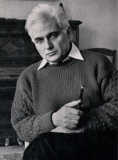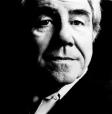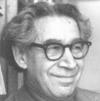
Derrida was one of the leading philosophers in the creation of the idea of deconstruction, a term that is now commonly used in everyday vernacular. Derrida stressed the idea of figuring out what is not said instead of just looking at what is. According to Derrida, deconstruction is not a method of reading texts, but rather something that is in the text itself; a natural occurrence. While I have studied Derrida from the realm of communication studies, he is renowned in linguistics and literary theory.
One of the most recent works on Derrida is a film entitled Derrida that follows him around and gives the viewers a chance to see Derrida among his family and in his personal life. The film makers got a chance to ask him about his work, and he answered most of the questions. It is also a chance to catch some of this prolific thinker's ramblings on film whereas otherwise we may never have had those specific insights into his mind. While there have been several negative reviews of the film, I really enjoyed it. Yes, it's fragmented, but is there any other way this man could be shown?
There are many web pages on Derrida, here is just one that I enjoy (be careful if you're at work, the sound on the page is very interesting).



